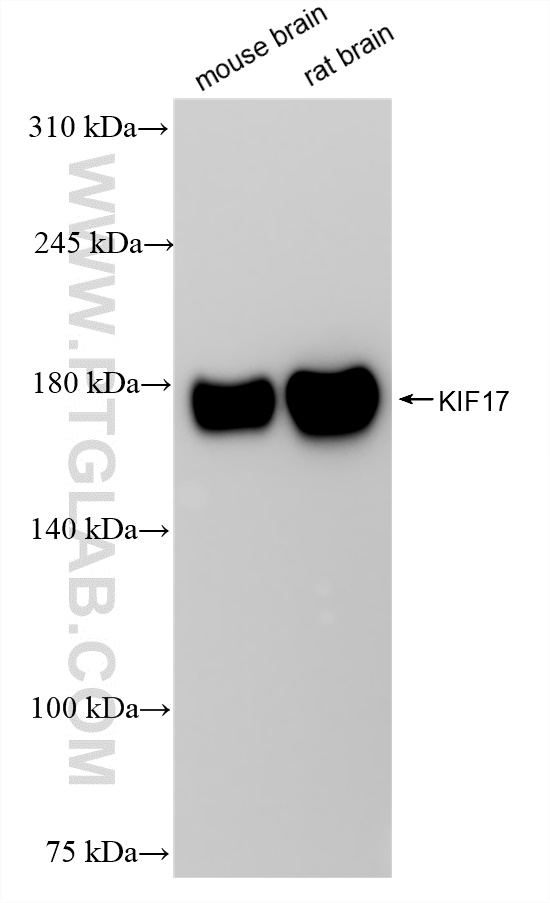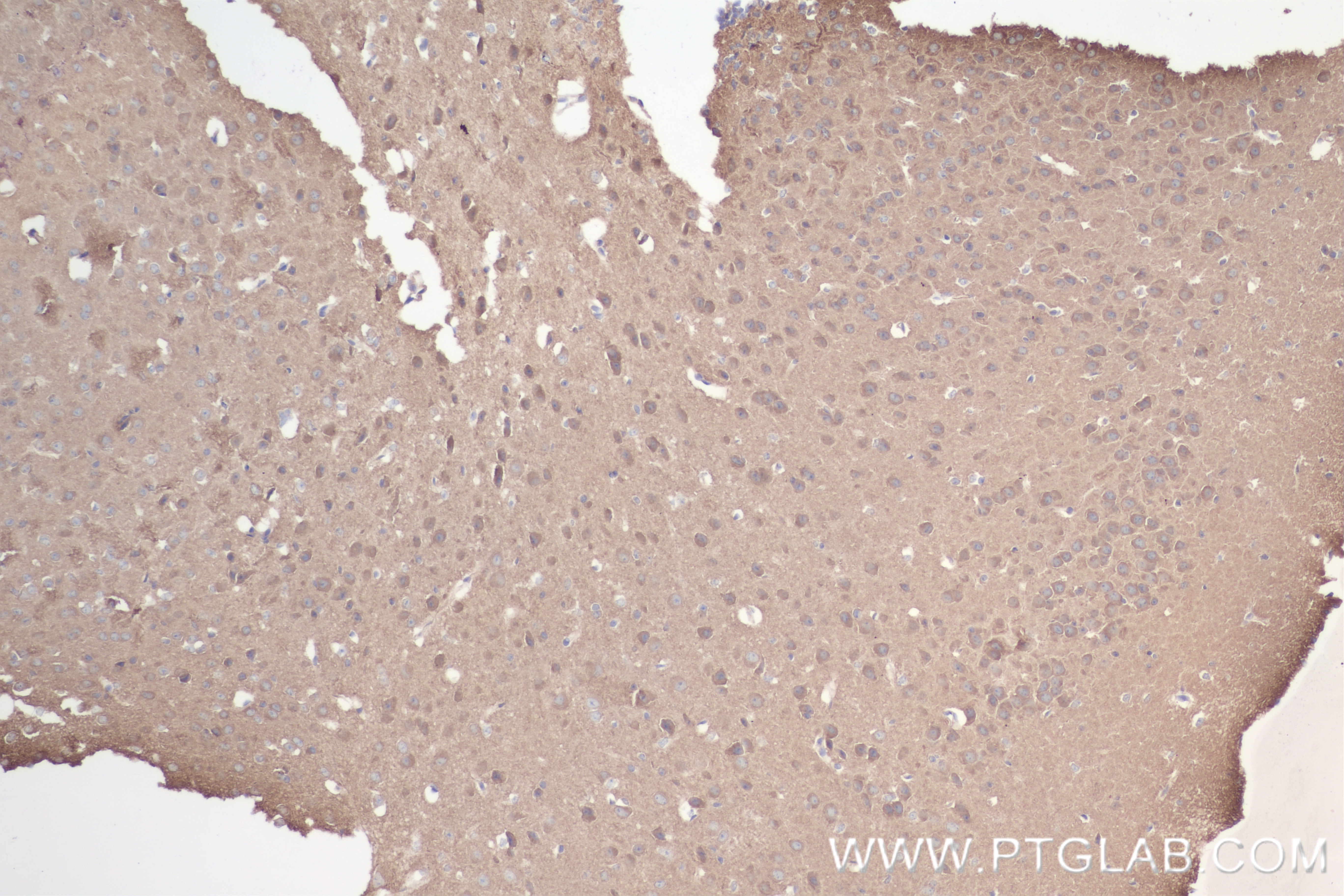验证数据展示
经过测试的应用
| Positive WB detected in | mouse brain tissue, rat brain tissue |
| Positive IHC detected in | mouse brain tissue Note: suggested antigen retrieval with TE buffer pH 9.0; (*) Alternatively, antigen retrieval may be performed with citrate buffer pH 6.0 |
推荐稀释比
| 应用 | 推荐稀释比 |
|---|---|
| Western Blot (WB) | WB : 1:5000-1:50000 |
| Immunohistochemistry (IHC) | IHC : 1:200-1:800 |
| It is recommended that this reagent should be titrated in each testing system to obtain optimal results. | |
| Sample-dependent, Check data in validation data gallery. | |
产品信息
85046-1-RR targets KIF17 in WB, IHC, ELISA applications and shows reactivity with human, mouse, rat samples.
| 经测试应用 | WB, IHC, ELISA Application Description |
| 经测试反应性 | human, mouse, rat |
| 免疫原 | KIF17 fusion protein Ag6217 种属同源性预测 |
| 宿主/亚型 | Rabbit / IgG |
| 抗体类别 | Recombinant |
| 产品类型 | Antibody |
| 全称 | kinesin family member 17 |
| 别名 | Kinesin-like protein KIF17, KIF3X, KIF3-related motor protein, KIAA1405, 242469G4 |
| 计算分子量 | 115 kDa |
| 观测分子量 | 170 kDa |
| GenBank蛋白编号 | BC065927 |
| 基因名称 | KIF17 |
| Gene ID (NCBI) | 57576 |
| 偶联类型 | Unconjugated |
| 形式 | Liquid |
| 纯化方式 | Protein A purfication |
| UNIPROT ID | Q9P2E2 |
| 储存缓冲液 | PBS with 0.02% sodium azide and 50% glycerol , pH 7.3 |
| 储存条件 | Store at -20°C. Stable for one year after shipment. Aliquoting is unnecessary for -20oC storage. |
背景介绍
KIF17 is a kinesin superfamily member, encoding a neuron-specific molecular motor. In neurons, KIF17 is responsible for the specialized transport of the N-methyl-D-aspartate receptor NR2B subunit, the glutamate receptor GluR5, and the potassium channel Kv4.2 from the cell body to the dendrites(PMID: 23762210).
实验方案
| Product Specific Protocols | |
|---|---|
| WB protocol for KIF17 antibody 85046-1-RR | Download protocol |
| IHC protocol for KIF17 antibody 85046-1-RR | Download protocol |
| Standard Protocols | |
|---|---|
| Click here to view our Standard Protocols |


